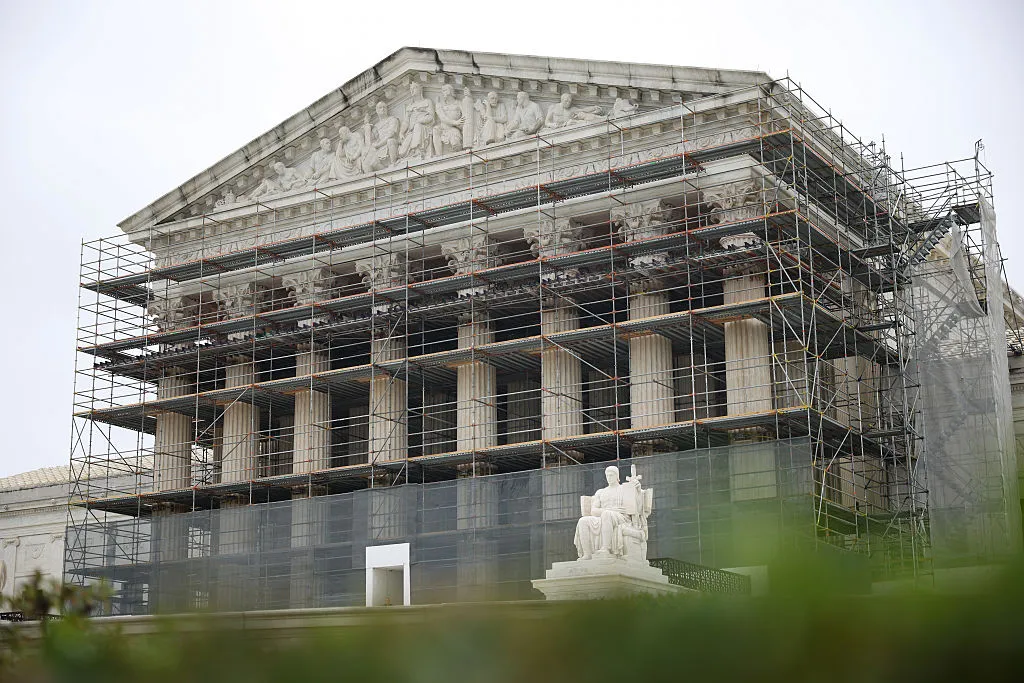Trump administration asks SCOTUS once again for ability to freeze billions in foreign aid


Updated on Sept. 9 at 6:11 p.m.
For the third time since February, the Trump administration has asked the Supreme Court to intervene in the battle over its efforts to freeze billions of dollars in foreign-aid funding. U.S. Solicitor General D. John Sauer urged the justices to pause what he described as “an unlawful injunction” entered by a federal judge in Washington, D.C., that “precipitates an unnecessary emergency and needless interbranch conflict.”
The dispute dates back to the beginning of President Donald Trump’s second term, when he signed an executive order that directed federal agencies to put commitments and disbursements of foreign-aid funds on hold so that the government could carry out a broad review of the programs to ensure that they were consistent with U.S. foreign policy objectives. Consistent with that order, Secretary of State Marco Rubio issued a memorandum freezing foreign-aid funds through the State Department and the U.S. Agency for International Development.
Several groups that had received foreign-aid funds, or whose members had received them, went to federal court to challenge the implementation of the executive order. U.S. District Judge Amir Ali issued an order on Feb. 25 that (among other things) directed the State Department and USAID to pay contractors and grant recipients within 36 hours for work that had already been done.
The Trump administration came to the Supreme Court the next day, asking the justices to step in. But in a brief opinion issued after the deadline had already passed, a divided court instructed Ali to “clarify what obligations the Government must fulfill to ensure compliance” with Ali’s order.
When the case returned to the lower court, Ali once again ruled for the challengers, holding that the Trump administration’s cancellation of funds that had been earmarked for foreign aid likely violated both the Constitution and federal law. He ordered the government to “make available for obligation the full amount of funds that Congress” had allocated.
The U.S. Court of Appeals for the District of Columbia Circuit lifted Ali’s order. But when it did not act quickly on either the challengers’ petition for rehearing or the government’s motion for it to promptly issue the mandate, which would put the ruling by the court of appeals into effect, the Trump administration came to the Supreme Court a second time.
In that Aug. 26 filing, Sauer told the justices that the district court had “installed itself as supervisor-in-chief of further spending and recissions proposals, issuing a preliminary injunction ordering the government to make available for obligation tens of billions of dollars in appropriated foreign aid funds and to spend many billions of dollars by September 30, before those appropriations expire.”
But the D.C. Circuit subsequently revised its original opinion, leaving the door open for the grantees to seek relief under the federal law governing administrative agencies, and Sauer withdrew the government’s request on Aug. 29.
When the case returned to the district court, Ali last week issued a new order requiring the Trump administration to commit to spending $4 billion in funds by Sept. 30. Concluding that the failure to do so likely violated the law, he explained that “no one disputes that defendants have significant discretion in how to spend the funds at issue, and the court is not directing defendants to make payments to any particular recipients. But defendants do not have any discretion as to whether to spend the funds.”
After the D.C. Circuit declined to put Ali’s order on hold, Sauer returned to the Supreme Court, writing that Ali’s order “raises a grave and urgent threat to the separation of powers.” On Aug. 28, Sauer explained, the administration had proposed the rescission of these $4 billion in funds, following the procedures outlined in the Impoundment Control Act. That notification, Sauer continued, then gives Congress 45 days to decide whether to rescind the money. During that time, Sauer reasoned, it would be impermissible for the Trump administration to commit the money as Ali has ordered.
Arguing that Ali, “not the government, has created a new emergency with little time left on the clock by issuing a new injunction based on new theories that are even more flawed than their predecessors,” Sauer urged the court to “reject such brinkmanship, avert further damage to the separation of powers, and stay this injunction as soon as practicable.”
Chief Justice John Roberts on Tuesday afternoon issued an administrative stay, which partially pauses Ali’s order to give the justices more time to consider the government’s request. In a brief order, the chief justice put Ali’s order on hold to the extent that it required the government to commit to spending $4 billion in funds that Trump has proposed be rescinded; Congress has 45 days to decide whether to cancel the funding. Roberts also ordered the challengers to file a response to the government’s request by Friday, Sept. 12, at 4 p.m.
Posted in Court News, Emergency appeals and applications
Cases: Department of State v. AIDS Vaccine Advocacy Coalition, Trump v. Global Health Council, Department of State v. AIDS Vaccine Advocacy Coalition